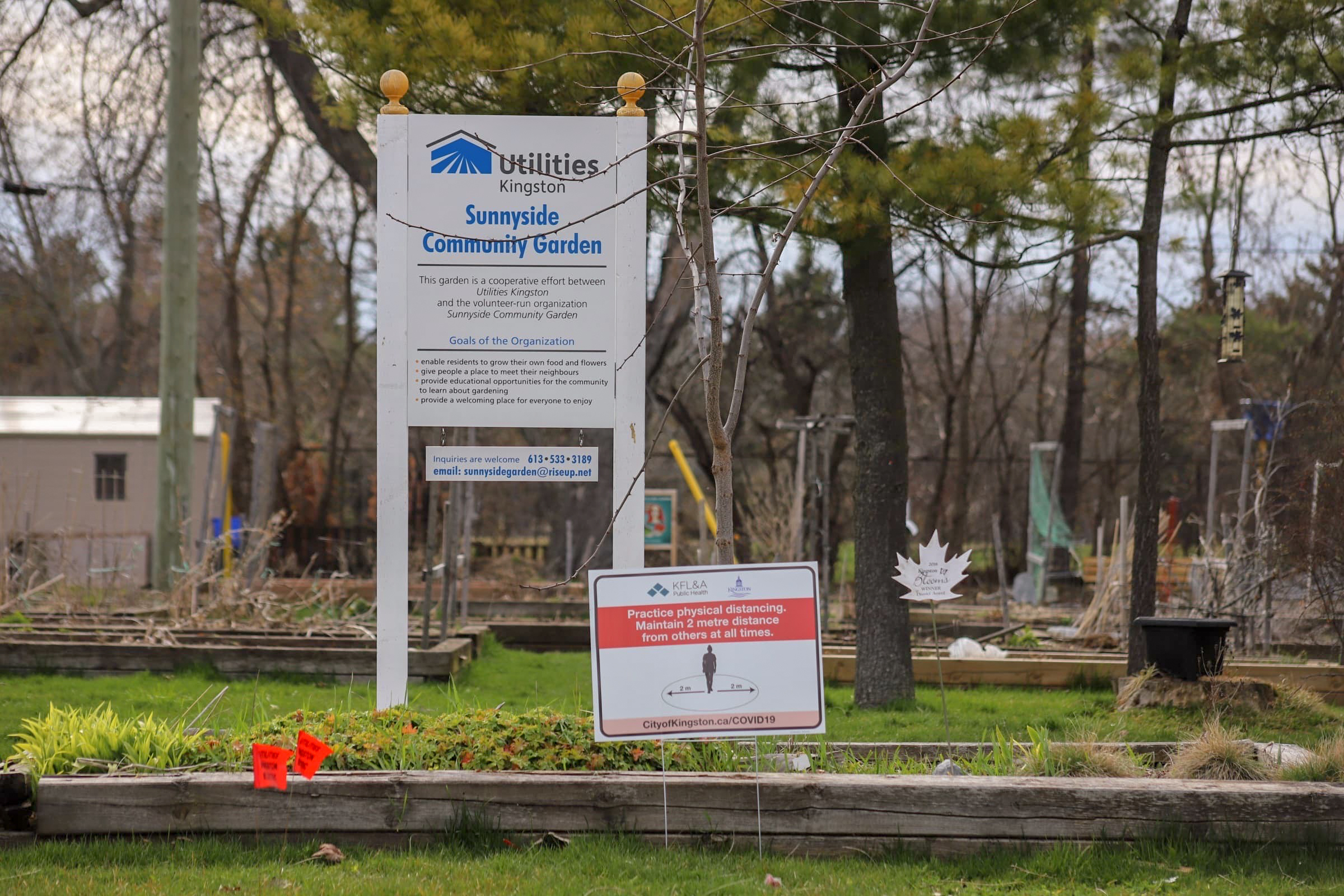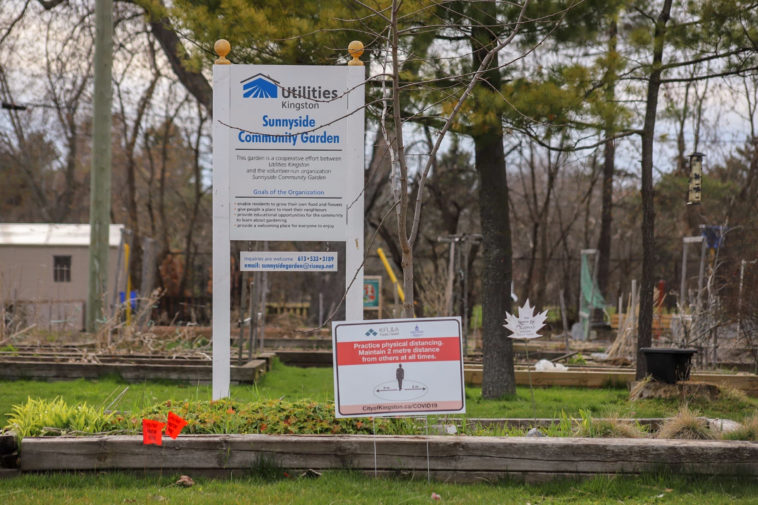Kingston group calls on City to improve community gardens access and food security solutions

Just Recovery Kingston was formed in early 2020, during the COVID-19 pandemic, to extend community support for recovery at the local level by putting people and the environment first.
Currently, the group has two priority areas. One is free transit for all, and the second is to expand access to community gardens on City land. Community gardens are vital to increase access to fresh food, improve air and soil quality, and support wellness. However, existing equity barriers reduce the ability of communities in Kingston to start and maintain community gardens, Just Recovery Kingston explains. The group is asking people to write letters to the City of Kingston calling on the duty to address ongoing financial barriers that make starting, operating, and accessing community gardens inequitable.
“The community garden group identified that finding space to grow food in Kingston was increasingly challenging and inequitable. We were told by members that there is significant red tape around starting a community garden on city land and put the considerable onus on residents themselves, to cover the cost of beds, soil, insurance policies, and to find space,” explained Bruce Knox, one of the organizers behind Just Recovery Kingston.
Some of the barriers identified by the group members are:
- Inadequate funding for the community garden grant budget.
- Costly liability insurance premiums still leave individual volunteers on the hook for the deductible.
- A raised-bed requirement, even where there is no evidence of soil contamination.
In Kingston’s Strategic Plan 2019-2022, one of the priorities is to promote food security solutions and “provide better support to community-led initiatives supporting local food production.” Therefore, the members at Just Recovery Kingston propose to increase funding for community garden grants from $5,000 to $50,000 annually. They also suggest that the City cover the cost of the $2 million liability insurance, required under the Community Gardens Development and Operations Policy, for all community gardens operating on City-land. Lastly, the group is calling on the City to adjust the Community Gardens Development and Operations Policy to allow in-ground, instead of only raised bed gardens, where appropriate and proven safe.
“Our group is doing this letter-writing campaign to let the City Council know of the barriers that are keeping more residents from starting new community gardens and sharing what we have learned from other cities,” Knox explained.
After progressing with the letter-writing campaign, the group aims to expand the project and propose solutions to address barriers to access and building community gardens. The members also plan to meet with their district councilors to discuss the solutions so that the obstacles get addressed in the 2022 budget.
“Ultimately, that is what it comes down to: prioritizing the financial barriers noted by members in the 2022 budget so that all residents, regardless of where they live, or what their background is, have space and the ability to participate in a community garden and grow their own food,” said Knox.
Interested residents can access the details to letter campaign and participate on Just Recovery Kingston’s website www.justrecoverykingston.com.
Published at Mon, 14 Jun 2021 17:18:29 +0000




Comments
Loading…